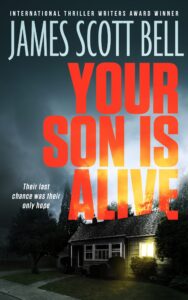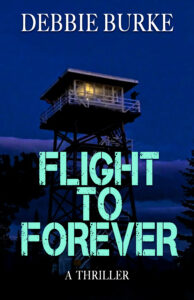by James Scott Bell
@jamesscottbell
 Got an email the other day from a young writer, thanking me for my craft books, which she says helped her finish a 100k MS that was pubbed by a small publisher. She goes on:
Got an email the other day from a young writer, thanking me for my craft books, which she says helped her finish a 100k MS that was pubbed by a small publisher. She goes on:
But now the spark has left my writing, and I don’t know what to do. My book barely sold any copies. Everything since then feels like a slog. My writing’s gotten worse, not better. I tried to be more “literary” in an attempt to be better, and turned out convoluted garbage instead of good stories. I don’t know what to do. I don’t believe in quitting, but I haven’t finished a novel-length manuscript since my book failed. That’s abnormal for me—I’d usually have another done by now. I have ideas, but there’s no joy left. No spark.
I’ve been half-heartedly querying a manuscript but I don’t even know if I want to roll with trad publishing. It seems more and more like a rigged system that churns out pandering, poorly-written garbage instead of actual stories. I’ve been trying to self-publish, but that’s failing, too.
I’m at my wit’s end, and I don’t know what to do. I just want to get the joy back into my writing. I’m only 25, and I already feel like a washed-up failure. What do I do?
Any of us who’ve written professionally for any length of time know this feeling. So the first thing I’ll say is, You’re not alone. Indeed, I have many multi-published, bestselling friends who have all been there at one time or another. I sent a group email to this wise company and got some great responses, some of which I’ve cobbled together (those are the passages in quotes).
Several of the writers offered a subtle warning about lashing out a rigged system that churns out pandering, poorly-written garbage. Publishing is a business, and some of that “garbage” is enjoyable for the one who really matters in this transaction, the reader. “Writing is what we do for OTHER PEOPLE—to inform, entertain, inspire, educate, chastise, or provoke. The end product should be completely other-centered, and what we produce has to be something other people want and need. Sure, it can be well-done and artistic, but not at the cost of communicating something valuable.”
You don’t want to develop a victim mentality. And while it’s good to have some moxie when you’re young, sprinkle a little humility into the mix, too. Recognize you still have learning and growing to do. Run that attitude right alongside your confidence.
Also, several pointed out that writing is not always a joy. For them (and me) it’s also a job. It puts bread on the table, so “writers do the work whether there’s a ‘spark’ or not. In my decades of writing that ‘spark’ hasn’t happened many times. Maybe once a book. Maybe. My writing epitaph could read She did the best she could.”
“A truck driver doesn’t get up in the morning and say to himself, Ah, I don’t feel like driving today’.”
Even when the words aren’t flowing, remember, “Writing is never wasted – even when it feels spark-less or pointless or decidedly not joyful. We’re learning and progressing all the time, even when the rejection form letter comes, even when the bad reviews pile up or the sales numbers stall out or our muse flies away. We’re showing up and getting stronger in our craft with every single sentence.”
And there is also a joy that comes only after the hard work pays off. “The ONLY book I’ve written where I felt any spark in the writing was my first one when I didn’t have a clue what I was doing. I was just writing with joyous abandon, amazed at what was coming out. After learning that what was coming out was NOT so amazing after all, I started REALLY being a writer, aka studying the craft, rewriting and re-re-rewriting. From that point forward, the joy has come only after I’ve had a buffer of a few weeks or months between being in the thick of a rewrite and then reading fresh what I wrote. Only then do I occasionally think, “Wow! I wrote that? Not half bad!”
Some practical advice:
- “Find encouraging people. People to cheer you on. Join writing groups. Sometimes talking about writing is a motivation booster. Find a writing buddy to be accountable to every day. Do writing spurts where you set the timer (15-25 minutes) and write without pausing.”
- Do Morning Pages.
- Don’t write for the money or the fame. That’s a by-product of writing good book after good book.
- Set yourself a weekly word quota this way: figure out how many words you can comfortably write in a day, 250 minimum (“A Ficus tree can do 250 words a day. Don’t be shown up by a Ficus tree.” – JSB). Whatever you’re comfortably doing, up that by 10%. You need to stretch. Then turn that into a weekly goal. If you miss a day, you can make it up on the other days. If you miss your weekly mark, forget about it and start fresh the next week. Steady production is, in my opinion, the key to the whole business.
- To get in flow with your story, concentrate on going deeper with your characters. Write some free form pages on their background, their emotions. Have them write you a letter. Listen to them. Very soon, you’ll be jazzed again.
- As for Trad v. Indie, don’t be seduced by the speed of indie publishing. Put your book through the same grinder as you would when trying to land a contract. Better to have one good book come out in a year than five lousy efforts in six months. The former begins to build a readership; the latter sinks that boat.
On the positive side, young writer, you have done what many wannabes never do. You completed a novel that was good enough to have a publisher give it a shot. That’s not insignificant. Build on that.
Carpe Typem. Seize the Keyboard.
Over to you, TKZers. Anything you’d like to offer our young writing friend?

 Recently one of our regulars, RLM Cooper,
Recently one of our regulars, RLM Cooper, 






